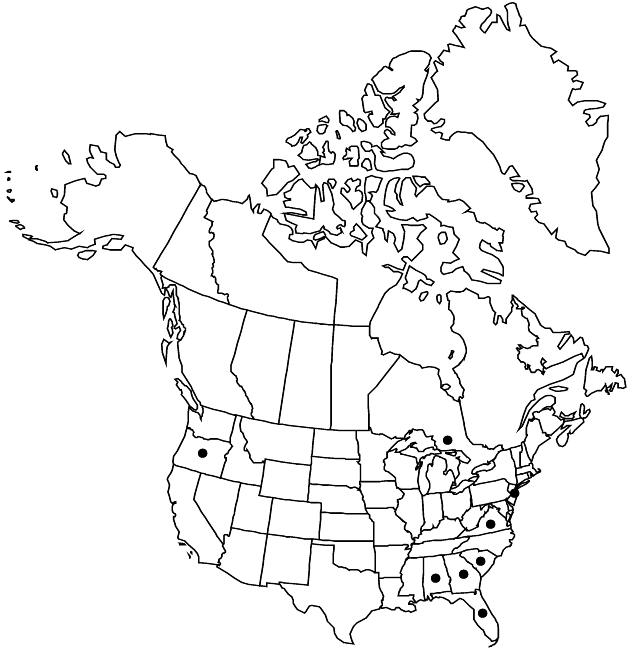Acanthospermum hispidum
in A. P. de Candolle and A. L. P. P. de Candolle, Prodr. 5: 522. 1836.
Introduced
Treatment appears in FNA Volume 21. Treatment on page 37.
Revision as of 22:02, 27 May 2020 by imported>Volume Importer
Plants 10–60+ cm. Stems erect. Leaf blades rhombic-ovate to obovate, (20–)40–120(–150+) mm, faces finely pilosulous, gland-dotted. Fruits ± compressed, ± cuneate to obovate, 4–6+ mm, not notably ribbed, terminal spines 2, divergent, 3–4 mm, often 1 ± uncinate, prickles seldom notably uncinate, ± scattered. 2n = 22.
Phenology: Flowering year round, mostly Aug–Oct.
Habitat: Disturbed, often sandy sites
Elevation: 0–100+ m
Distribution

Introduced; Ont., Ala., Fla., Ga., N.J., Oreg., S.C., Va., South America, also introduced in Mexico, West Indies, Central America, Europe, Asia, Africa, Pacific Islands (Hawaii).
Discussion
Selected References
None.
Lower Taxa
None.